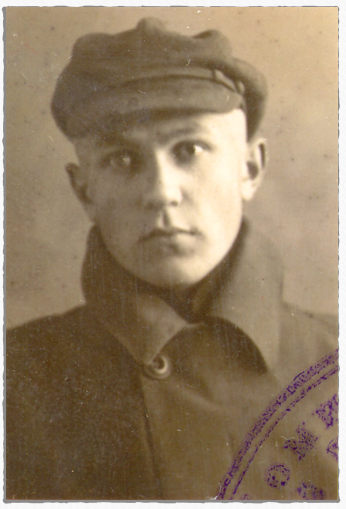

Childhood
Shalamov owed a lot to his family: his unwavering moral firmness and courage, which can only come from one’s childhood, when one’s personality comes into being, when it gets molded. His scrupulous honesty and his proud search for independence.
(Sirotinskaya I., The Years We Talked, Moscow 2006)
Youth. Moscow. Moscow State University
As to poetry, he related most to the tradition of the philosophical lyric poetry of Baratynsky, Tyutchev, and Pasternak. There was something cerebral, so to speak, in his love for Pasternak. He would often recite passages from My Sister Life and say: “What a way of looking at things! I’m at a complete loss! How does he manage to drag entire new layers into poetry!”
(Sirotinskaya I., The Years We Talked, Moscow 2006)
1929, the first arrest
I consider the best time of my life to be the months spent in the cell of Butyrki prison, where I managed to strengthen the spirit of those who were weak and where everyone talked free.
(Shalamov V., What I’ve seen and learned at Kolyma camps, from New book, Moscow, 2004)
Vishera
I'm proud that at the very beginning, back in 1937, I decided to never become a foreman if my decision could lead to another man's death, if my will would be forced to serve the authorities oppressing other people, prisoners like myself.
(Shalamov V., What I’ve seen and learned at Kolyma camps, from New book, Moscow 2004)
1933-1937, the second arrest
The qualities he valued most in himself were faithfulness, moral firmness (“never betrayed anyone in the camps, never ratted anyone out, never played on others’ blood”). And talent. “I am that cobbler born to become a Napoleon, as in Mark Twain’s novel. I was going to become Shakespeare. The camps have killed it all.”
(Sirotinskaya I., The Years We Talked, Moscow 2006)
Kolyma
I am convinced: the Kolyma camp is a negative experience — entirely. If one spent but an hour there — it would be an hour of moral corruption. Kolyma has never given anything to anyone — and never could. Kolyma corrupts both prisoners and civilians.
(Shalamov V., What I’ve seen and learned at Kolyma camps, from New book Moscow, 2004)
1950s
VT said with grief that even his first night in Moscow he had spent outside of his home. His wife was afraid to bring him, an illegal visitor, into the apartment. Seeing him off to Kalinin, she tried to console him:
“But wait till I write to you! Let’s see if the mail can handle all my letters!”
“Write? Again?”
(Sirotinskaya I., The Years We Talked, Moscow 2006)
1960s
Examining his papers, I found in an envelope the carefully preserved page of a desk calendar from this date with his note ’11:30’. On that precise day and time I came to him for the first time. I came about a work-related matter as an employee of the Acquisitions Department of the Central State Archive of Literature and Art. The meeting was arranged by my friend Natalya Yuryevna Zelenina, whose mother, the poet and scholar Vera Nikolayevna Klyuyeva, was friends with Varlam Tikhonovich. Natasha warned me:
‘Watch out, he’s very brusque. One thing not to his liking, and you are flying down the stairs.’
I decided to risk it, all the more so as Varlam Tikhonovich lived on the first floor then.
(Sirotinskaya I., The Years We Talked, Moscow 2006)
1970s
Varlam Tichonovich, as a man whose personality took shape in the 20s,
was fond of abbreviations. “FTM”, “forward-thinking mankind” is one of
them. It frequently recurs in his written soliloquies, in the notes he
kept for himself in the 70s. He obviously did not mean the truly
forward-thinking public figures, but rather the noisy crowd which
passionately adheres to every public endeavour, including those
endeavours where forward thought is actually to be found. The FTM has
few serious things to do, yet has lots of ambition, and likes
sensation and rumours. Its foundation is weak, the slightest breath of
air will blow off the flamboyant and boisterous activity of those
forward-thinking activists.
(Sirotinskaya I., The Years We Talked, Moscow 2006)
The last years, 1979-1982
On January 15, 1982, his fragile and miserable paradise was destroyed.
He was transferred to a different nursing home for disabled people, a
neuropsychiatric one. The fuss that had been going on around him
starting from the second half of 1981, thanks to a group of
well-wishers, has played a certain role in the transfer. Of course,
there were among them both genuinely good people, as well as those who
were hustling about for selfish motives, thirsty of sensation. It was
from among their ranks that two posthumous “wives” of Varlam
Tikhonovich's emerged, who began besieging official agencies
accompanied by a crowd of witnesses.
(Sirotinskaya I., The Years We Talked, Moscow 2006)
Monuments
The copyright to the contents of this site is held either by shalamov.ru or by the individual authors, and none of the material may be used elsewhere without written permission. The copyright to Shalamov’s work is held by Alexander Rigosik. For all enquiries, please contact ed@shlamov.ru.
